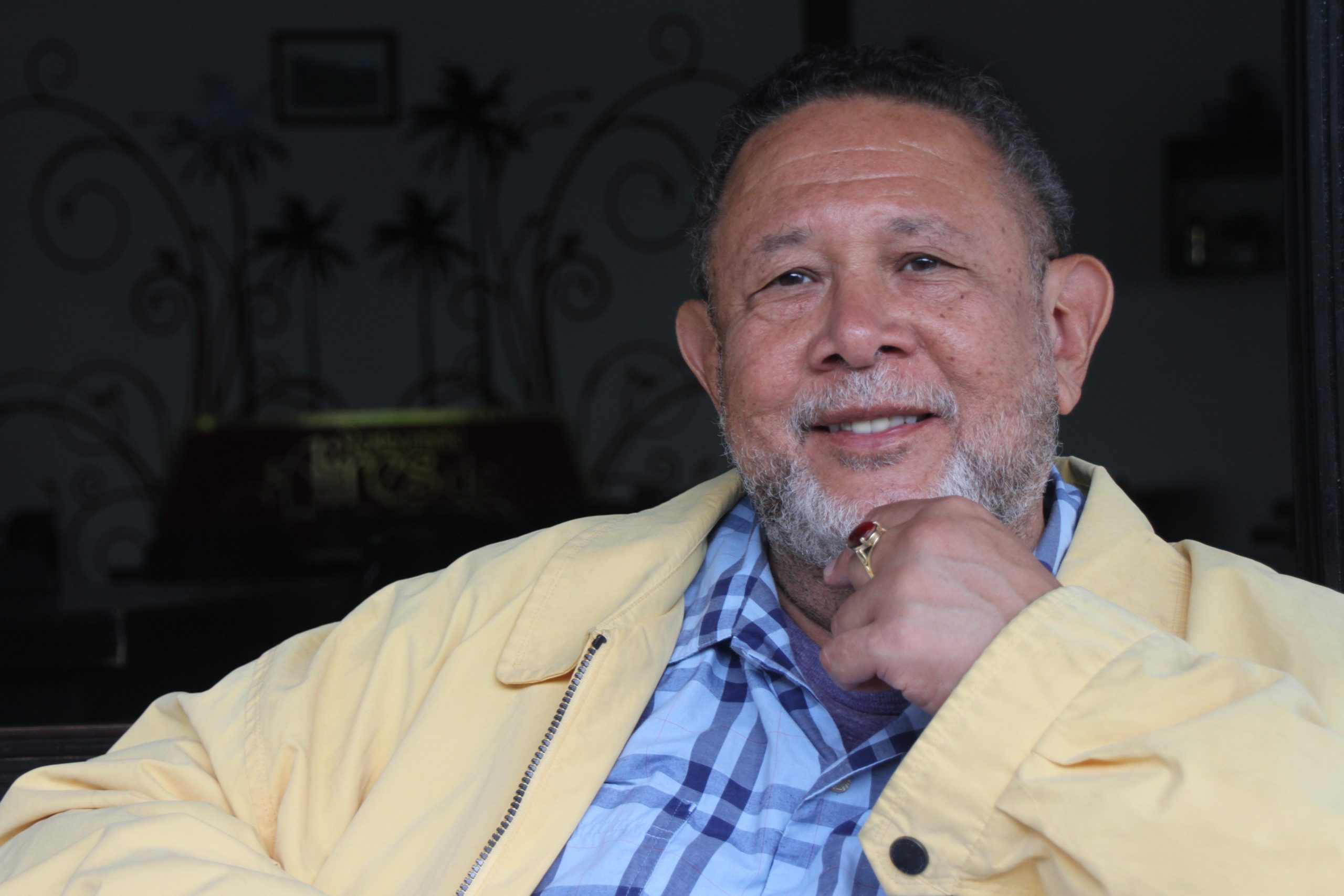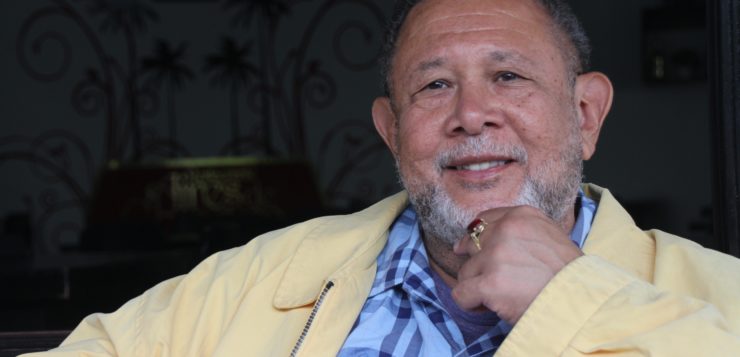THE AUTHOR of eight volumes of poetry, five novels, a book of film criticism, a translation of Sor Juana Inés de la Cruz’ love poetry, and an acclaimed memoir about his friendships with Reinaldo Arenas and Manuel Puig, Jaime Manrique has received praise from the likes of John Ashbery, Susan Sontag, Junot Diaz, and Pauline Kael. He has been awarded a Guggenheim Fellowship, the International Latino Book Award, and the Publishing Triangle’s Bill Whitehead Award for Lifetime Achievement.
 As a bilingual Colombian-American immigrant who arrived in Florida in 1966, Manrique’s life as a writer and a gay man during a time of enormous social change has given him a unique and instructive view of the American writing life—American as in all of the Americas. His most recent novel, Like This Afternoon Forever, is a book about big ideas like social justice, spirituality, gay love, and the dire state of our world as corruption and violence grow ever more endemic.
As a bilingual Colombian-American immigrant who arrived in Florida in 1966, Manrique’s life as a writer and a gay man during a time of enormous social change has given him a unique and instructive view of the American writing life—American as in all of the Americas. His most recent novel, Like This Afternoon Forever, is a book about big ideas like social justice, spirituality, gay love, and the dire state of our world as corruption and violence grow ever more endemic.
After meeting Manrique in New York City during my fall book tour, I interviewed him by e-mail from Mexico City in February.
Trebor Healey: You immigrated to the U.S. at sixteen. Can you tell us about your experience as both a Colombian immigrant and a gay one?
Jaime Manrique: When I visit Colombia, despite my love for the place, and its people, I feel half Colombian and half gringo. I envy those Colombians who are 100 percent undiluted culturally. It’s harder to be genuinely from two places at the same time. However, I’m glad that I can experience the good qualities of Colombia and the United States and, at the same time, see more objectively the flaws of both countries and national temperaments. That split consciousness is present in my fiction, poetry, and essays. What I used to think was a weakness has turned out to be a blessing. As someone bicultural, and bilingual, I think I have deeper perspectives about the world than the perceptions of writers who only see their culture through the narrow focus of their insular experience.
As for being gay, if I had stayed in Colombia, I would have become stunted as a human being and probably would have destroyed myself. Colombia has made important progress in terms of accepting the rights of queer people. However, when I go there I’m more aware—not always in a good way—of being a gay man. In the U.S., although I’ve experienced homophobia and racism, I don’t have to hide my sexuality in any way or feel defensive about it.
TH: You’ve written about New York in the picaresque novel Latin Moon in Manhattan, which is not just about your experience but about an amazing cast of characters who make up that vital Latin American subculture. Tell us about how you came to write it.
JM: Latin Moon in Manhattan was the first novel I wrote in English. A good deal of it is autobiographical. I wasn’t sure I could write in English until the editor Carol Southern (who published my novel Colombian Gold, which I wrote in Spanish) told me I should write about someone who was like me. After the publication of Colombian Gold, in 1983, everything I wrote felt inert, disconnected from my real self. One day, my then neighbor Lorrie Moore told me: “Write about the subway.” I took that to mean that I should write about the life I knew. And that’s what I did in Latin Moon.
TH: In your latest novel, Like This Afternoon Forever, you explore so many important ideas—liberation theology, gay priests, the Colombian civil war, corruption, violence, and how one constructs a spiritual life when it can get you killed. I thought it was perhaps the most universal gay novel I’ve ever read, and I wonder if you could talk a little a bit about it.
JM: Thank you for that high praise. First, Like This Afternoon Forever is based on real events. When I read about the two priests who were lovers and their story, it captivated me, and I was hooked. When I started out as a writer, I adored Graham Greene’s theological and political novels that dealt with love and evil. I loved The Power and the Glory, which I read when I was in my twenties. I was shaken by this story of a drunken, sacrilegious priest during the Mexican Revolution. In my latest novel, my intention was to write honestly about how difficult it can be to love another human being in a long-term relationship, especially two men, because there are not too many novels about queer people who do that. I was in a relationship with the late painter Bill Sullivan for 33 years; it was the hardest thing I’ve ever done, and the most enriching.
TH: Your first book, The Moon Worshippers (Los Adoradores de la Luna), won Colombia’s National Poetry prize in 1975. Do you still write poetry?
JM: Yes, but I don’t write poetry all the time. When I think I’m beginning to repeat myself, I prefer to go silent until a fresh vein appears. I have gone without writing poetry for many years, but I always have returned to it. I think about new poems just about every day, but discard finishing them if they don’t feel fresh and true. My poetry is mostly lyrical, intimate, the part of me that I would prefer not to share publicly. For me, writing fiction is a much more public activity. I would like to stress here that most of my poetry has been written in Spanish. Nowadays, I prefer to read poetry and essays more than fiction. But really good poems are still a rarity. I love Elizabeth Bishop’s work so much because each one of her poems is a gem.
TH: You’ve had friendships with Manuel Puig, Reinaldo Arenas, and Pauline Kael. Tell us a bit about these extraordinary people.
JM: I was in awe of Reinaldo’s formidable bravery in denouncing the crimes committed in the name of the Cuban revolution. Like Manuel and Pauline, he encouraged me. When I was (briefly) Manuel’s student, he said to me: “Your writing comes from under the epidermis.” That was the loveliest thing anybody I admired ever said to me. Pauline, whom I knew longer than I knew Manuel or Reinaldo, many years into our friendship helped me edit a few pieces. She made me work harder than I had until that point. Because she didn’t give praise easily, when she liked something I had done, her approval was precious to me. Once I told her that Mario Vargas Llosa had said to me that he was offended by my novel Colombian Gold. “Oh good,” she said, “it’s great when our writing offends people.”
TH: What are you thoughts on the current state of American fiction, and trends in Latinx and Anglo fiction? And who are the young Latinx LGBT writers today to watch out for?
JM: There are lots of North American, Latin American, Latinx, African, Asian, and Arab writers whose work I admire, but I’d rather not mention any names because that inevitably means I’ll leave someone out. I know that it is sacrilegious, what I’m about to say: for me, some of the best writing done today is found on TV. These writers seem to tell the most relevant stories of our time. And they are very daring, sometimes way ahead of novelists and short story writers.
TH: The American Dirt controversy has been instructive regarding the lack of visibility of Latin American writers. Who should write about what and is there an issue of objectivity vs. subjectivity, censorship or privilege, and what is best for literature and the discussion that it entails?
JM: I’ve read bits of the book, excerpts quoted in reviews, and they read like purple writing of the worst kind: it trivializes the experience of the people who have suffered and died crossing the border. Dickens, one of the very greatest novelists, was often sentimental and gooey, but his understanding of human beings was so encompassing that I can forgive him all his faults. American Dirt sounds like a pitch for a ludicrous “splatter movie.” I don’t mind that the author’s not Latina. Graham Greene, Joseph Conrad, V.S. Naipaul, and other talented novelists often wrote perceptively, and brilliantly, about cultures they visited. What is so distressing about American Dirt is that somebody was going to write that kind of book, anyway. Immigration right now has become a cash machine. I blame the agents, the editors, and the publishers who exploit the tragedy. If American Dirt were a good novel, I wouldn’t mind that an “outsider” wrote it.
TH: Finally, I know you are working on yet another novel. Can you tell us about it?
JM: All I can tell you is that it’s like nothing I’ve done before.
Trebor Healey’s latest book of short stories is titled Falling (Wisconsin, 2019). He divides his time between Mexico City, L.A., and other locales.





